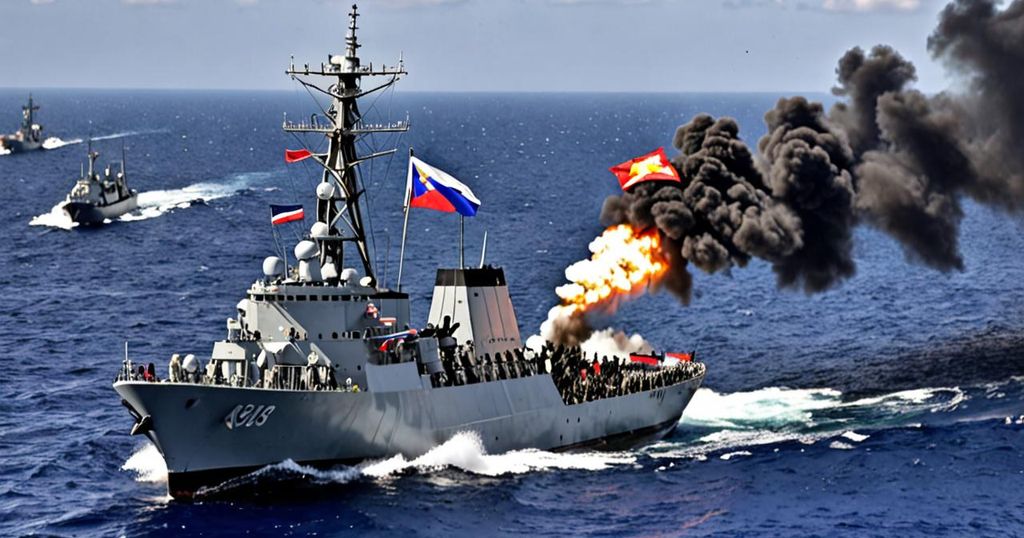In the recent South China Sea conflict, China has been accused of employing aggressive tactics as its vessels engaged in what were described as “dangerous maneuvers” in an attempt to tow a ship belonging to the Philippines.
The South China Sea has been a source of tension between Chinese and Philippine vessels, particularly near Second Thomas Shoal, a submerged reef claimed by both countries but under the control of the Philippines. Incidents of ship collisions have occurred repeatedly in this area. However, the reported attempt by Chinese vessels to tow a Philippine ship indicates a worrisome escalation in the conflict.
In response to these events, the United States, which has a defense agreement with the Philippines, strongly criticized what it deemed as “irresponsible actions” by China. The U.S. expressed disapproval of China’s efforts to impede the Philippines from delivering humanitarian supplies to its military personnel stationed at a Philippine garrison located on the BRP Sierra Madre, a warship intentionally grounded on the shoal in 1999.
This recent development signifies a concerning turn in the longstanding dispute over the South China Sea, drawing international attention and raising apprehensions of further escalation. The United Nations Convention on the Law of the Sea (UNCLOS) recognizes the right of all countries to use the sea for navigation, overflight, and resource exploitation. However, none of the concerned parties have been able to reach a consensus on the application of this international law to the South China Sea.
The dispute encompasses maritime boundaries, sovereignty claims, and access to natural resources and has implications that extend beyond the directly involved parties. The region is home to vital shipping routes and is rich in fisheries and energy reserves. Therefore, the potential for this conflict to disrupt global trade and impact the economic interests of other countries is significant.
The Southeast Asian nations, including the Philippines, have sought a sound and peaceful resolution to these territorial disputes through diplomacy and international arbitration. The role of the international community in facilitating negotiations between China and the Philippines has been highlighted as a critical component in achieving a fair and mutually agreeable resolution to the conflict.
Ultimately, the rest of the world has a stake in the peaceful resolution of this matter, given its potential to disrupt global stability and security. It is crucial for all involved parties to exercise restraint, adhere to international law, and engage in constructive dialogue. Further escalation of tensions poses a threat not only to the countries directly involved but also to the broader international community.
In conclusion, the recent aggressive actions by China in the South China Sea represent a troubling development in an already tense situation. While the immediate focus is on the Philippines and China, the implications of this conflict extend far beyond the region. It is imperative for the international community to play a constructive role in facilitating a peaceful resolution and upholding the principles of international law. By doing so, the risk of further escalation and its potential global impact can be mitigated.

Leave a Reply